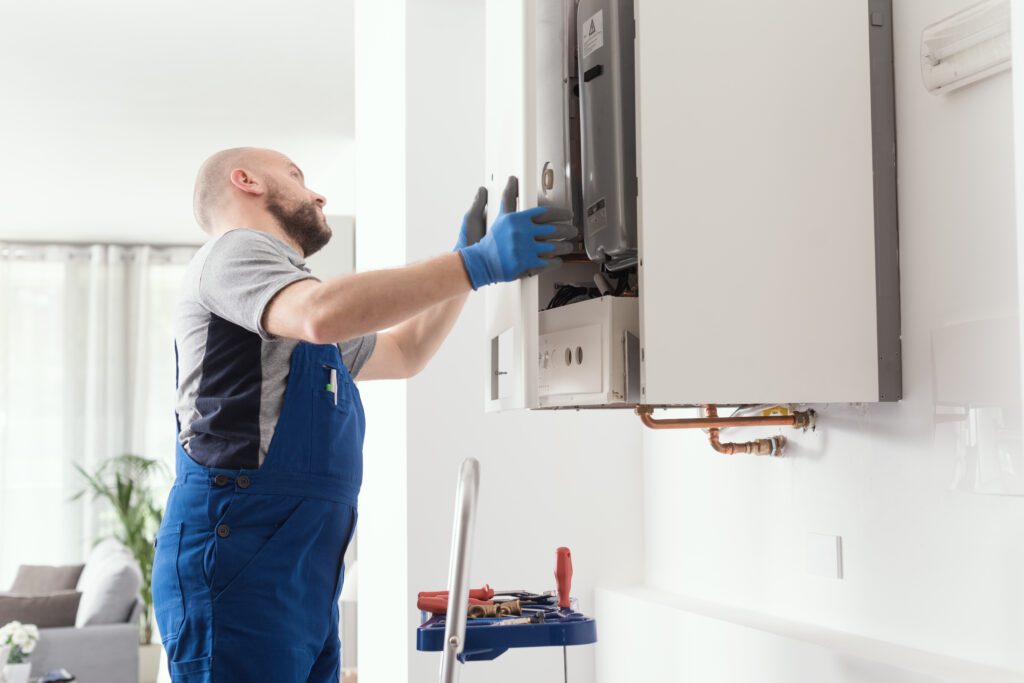A boiler is a crucial component of any heating system, providing warmth to our homes and hot water for our daily needs. Like any other appliance, boilers can experience wear and tear over time, leading to potential breakdowns and inefficiencies. Therefore, it is essential to recognize the signs of boiler trouble and take prompt action to avoid further complications. In this article, we will explore the various aspects surrounding boiler repairs, including understanding the functioning of your boiler system, recognizing signs of trouble, the importance of regular maintenance, steps to take when your boiler needs repair, and the potential consequences of ignoring boiler problems.
Understanding Your Boiler System
Before delving into the signs that indicate a need for boiler repair, it is essential to have a basic understanding of how your boiler system operates. Boilers work by heating water, which then flows through pipes to provide hot water for bathing and cooking, as well as to radiators to distribute heat throughout your home. Depending on the type of boiler you have, this heating process may differ slightly.
The Basics of Boiler Functioning
In a nutshell, boilers generate heat by burning fuel, such as gas, oil, or electricity. This heat is transferred to the water contained within the boiler, raising its temperature. The heated water then circulates through the pipes, providing warmth and hot water where needed. Understanding this fundamental process will help you identify problems and communicate effectively with a professional technician should issues arise.
Common Types of Boilers
Boilers come in various types, each with its own set of advantages and considerations. The most common types include:
- Combi boilers
- Conventional boilers
- System boilers
Combi boilers are popular due to their compact size and ability to provide hot water on demand. Conventional boilers, on the other hand, store hot water in a separate cylinder and are suitable for larger households with higher hot water demands. System boilers have built-in components, eliminating the need for an external water tank. Knowing which type of boiler you have is essential for troubleshooting and understanding how it should be maintained.
Now that you have a grasp of the basics, let’s dive a little deeper into the inner workings of a boiler system. Within the boiler, there are several key components that play a crucial role in its operation. These include the burner, heat exchanger, pump, and controls.
The burner is responsible for igniting the fuel and producing the heat necessary to raise the temperature of the water. It is important to ensure that the burner is clean and functioning properly to maintain optimal efficiency and prevent any potential issues.
The heat exchanger is where the transfer of heat from the burner to the water takes place. This component is designed to maximize heat transfer while minimizing energy loss. Regular maintenance and cleaning of the heat exchanger are essential to keep it in good condition and prevent any blockages or inefficiencies.
The pump is responsible for circulating the heated water throughout the system. It ensures that the hot water reaches all the necessary outlets and radiators in your home. If the pump is not functioning correctly, you may experience uneven heating or a lack of hot water in certain areas. Regular inspection and maintenance of the pump can help prevent any potential issues.
Lastly, the controls of the boiler system allow you to regulate the temperature and settings. These controls can include thermostats, timers, and pressure gauges. Understanding how to properly use and adjust these controls will help you optimize the performance of your boiler system and ensure it operates efficiently.
By having a deeper understanding of the inner workings of your boiler system, you will be better equipped to identify any potential issues and communicate effectively with a professional technician. Regular maintenance and servicing of your boiler system are crucial to ensure its longevity and efficiency, so be sure to schedule routine check-ups to keep your system running smoothly.
Recognizing Signs of Boiler Trouble
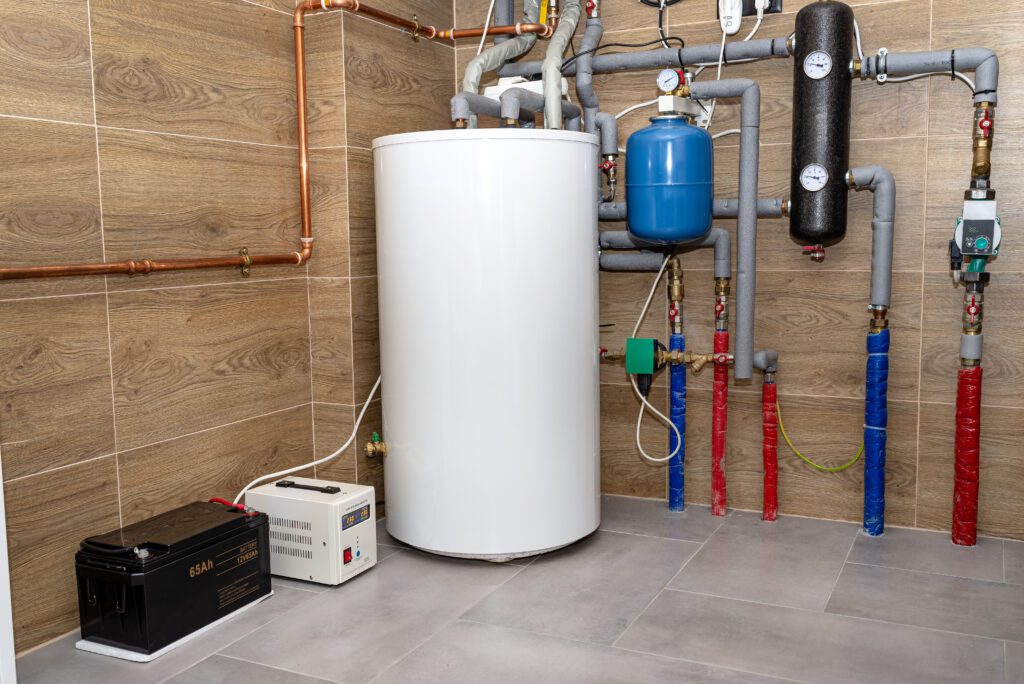
Your boiler may exhibit several indicators that it requires repair or maintenance. Being aware of these signs can help you identify issues before they escalate.
Regular maintenance and inspection of your boiler system are crucial to ensure its optimal performance and longevity. By recognizing and addressing early warning signs of trouble, you can prevent costly repairs and potential safety hazards.
Unusual Noises from Your Boiler
If your boiler is making strange noises, such as banging, clanking, or whistling sounds, it could signify a mechanical issue. These noises are often caused by a buildup of limescale, trapped air, or faulty internal components. Ignoring these sounds could lead to more severe damage and decreased efficiency.
To address unusual noises coming from your boiler, it is recommended to contact a professional HVAC technician for a thorough inspection. They can identify the root cause of the noise and perform the necessary repairs to ensure your boiler operates smoothly and quietly.
Inconsistent Heating and Hot Water Supply
If you notice that your radiators are not heating up as expected or that you’re experiencing fluctuating water temperatures, it could be a sign that your boiler is struggling to distribute heat efficiently. This issue can be caused by a variety of factors, including pump failure, blockages, or a malfunctioning thermostat.
Proper maintenance of your boiler system, including regular cleaning and servicing, can help prevent issues with inconsistent heating and hot water supply. Ensuring that all components are functioning correctly and efficiently can improve the overall performance of your boiler and reduce the likelihood of breakdowns.
Increased Energy Bills
If your energy bills have significantly spiked without any changes in usage or rates, it could indicate that your boiler is working harder than it should be. This increased energy demand is often a result of inefficiencies or underlying issues within the boiler, which require attention.
Monitoring your energy consumption and keeping track of any unusual spikes in your bills can help you identify potential problems with your boiler. Addressing these issues promptly through professional maintenance and repairs can not only save you money on energy costs but also extend the lifespan of your boiler.
The Importance of Regular Boiler Maintenance
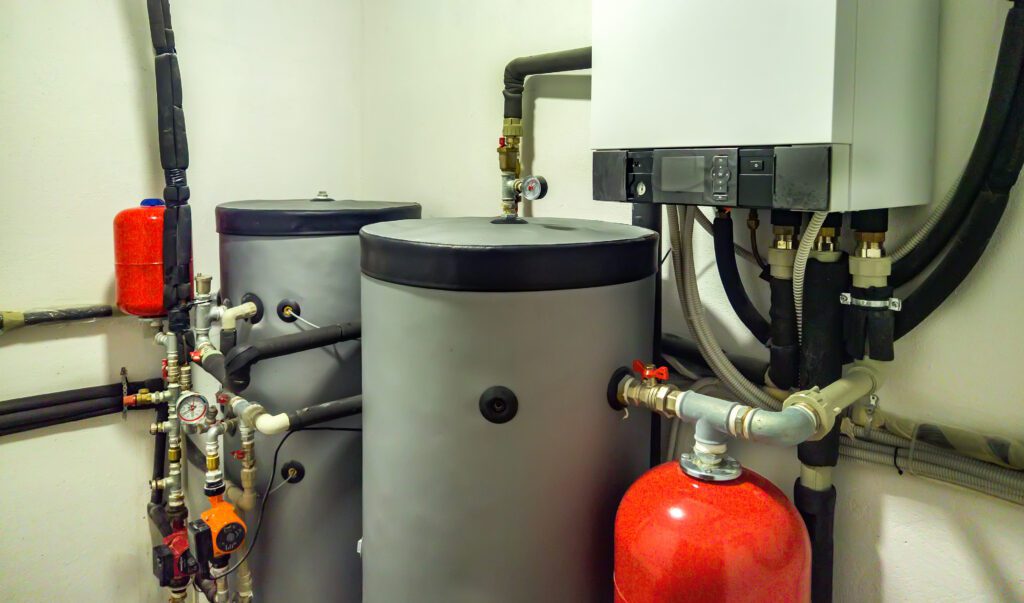
Regular maintenance is crucial for maximizing the lifespan and efficiency of your boiler. By proactively addressing minor issues and ensuring that all components are functioning optimally, you can prevent major breakdowns and costly repairs.
Boilers are a significant investment in any home or business, and regular maintenance is key to protecting that investment. Beyond just ensuring the functionality of your boiler, proper maintenance can also help improve energy efficiency, leading to lower utility bills and reduced environmental impact. By scheduling routine maintenance, you are not only safeguarding your comfort but also contributing to a more sustainable future.
Preventing Major Breakdowns
Regular maintenance helps identify and address minor problems before they develop into major breakdowns. During a professional boiler service, a technician will inspect various components, clean or replace filters, check for leaks, and ensure that everything is in proper working order. This proactive approach can save you from unexpected and expensive repair bills.
Moreover, regular maintenance can also enhance the safety of your boiler system. Detecting and fixing issues early on can prevent hazardous situations such as gas leaks or carbon monoxide emissions. Prioritizing maintenance not only protects your boiler but also ensures the well-being of everyone in your home or building.
Extending the Lifespan of Your Boiler
A well-maintained boiler is likely to have a longer lifespan. By keeping all parts in good condition and addressing issues promptly, you can maximize the longevity of your boiler, avoiding the need for premature replacement.
Furthermore, proper maintenance can help maintain the warranty on your boiler. Many manufacturers require proof of regular maintenance to uphold the warranty terms. By staying up to date with maintenance schedules, you can ensure that your boiler remains covered, providing you with added financial protection in case of unexpected malfunctions.
Steps to Take When Your Boiler Needs Repair
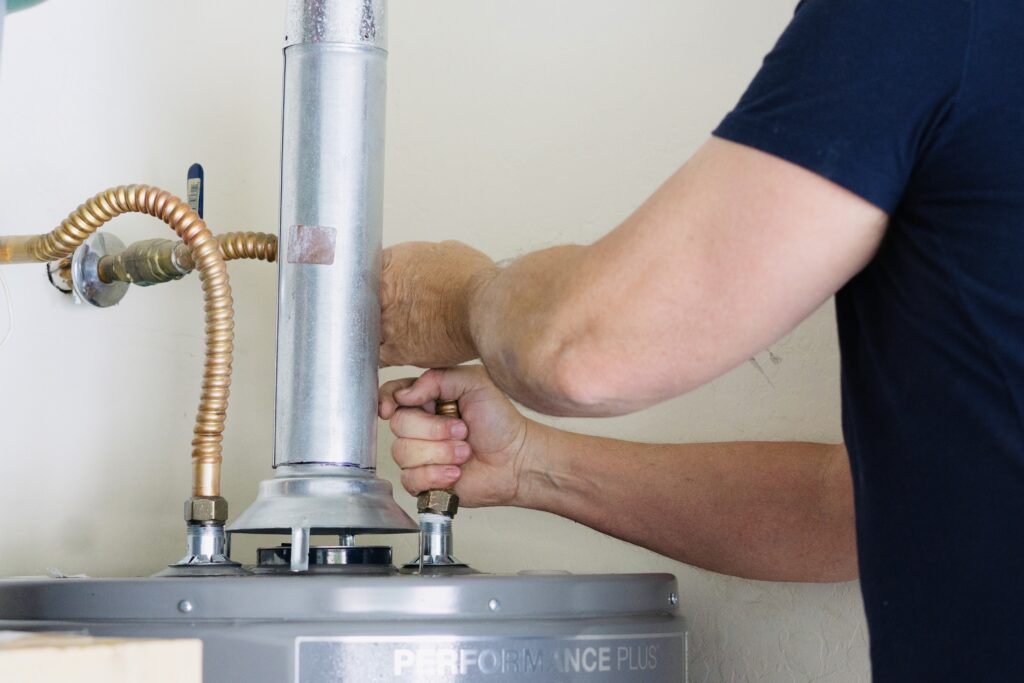
If you have determined that your boiler requires repair, it is important to take the appropriate steps to resolve the issue promptly and minimize any inconvenience.
Boilers are essential for providing warmth and comfort in your home, especially during the colder months. When a boiler malfunctions, it can disrupt your daily routine and leave you without heating and hot water. Addressing boiler issues promptly is crucial to ensure the continued functionality of your heating system.
Contacting a Professional Boiler Technician
Boiler repairs should be carried out by trained and experienced professionals. Attempting to fix boiler issues on your own can be dangerous and may exacerbate the problem. Contact a certified boiler technician as soon as possible to diagnose and repair the issue.
A qualified boiler technician will have the expertise to identify the root cause of the problem and recommend the most effective solution. They will also have access to specialized tools and equipment needed to carry out repairs safely and efficiently. By entrusting your boiler repair to a professional, you can have peace of mind knowing that the issue will be addressed correctly.
Preparing Your Home for Boiler Repair
Prior to the arrival of the technician, make sure to clear any clutter surrounding the boiler. This will allow the technician to access the unit easily and work efficiently. Additionally, ensure any pets or children are kept away from the area to maintain their safety during the repair process.
Creating a clear path to the boiler not only facilitates the repair process but also ensures the technician can work without any obstructions. This can help expedite the repair and minimize the time your heating system is out of commission. Taking these simple steps can contribute to a smooth and successful boiler repair experience.
The Potential Consequences of Ignoring Boiler Problems
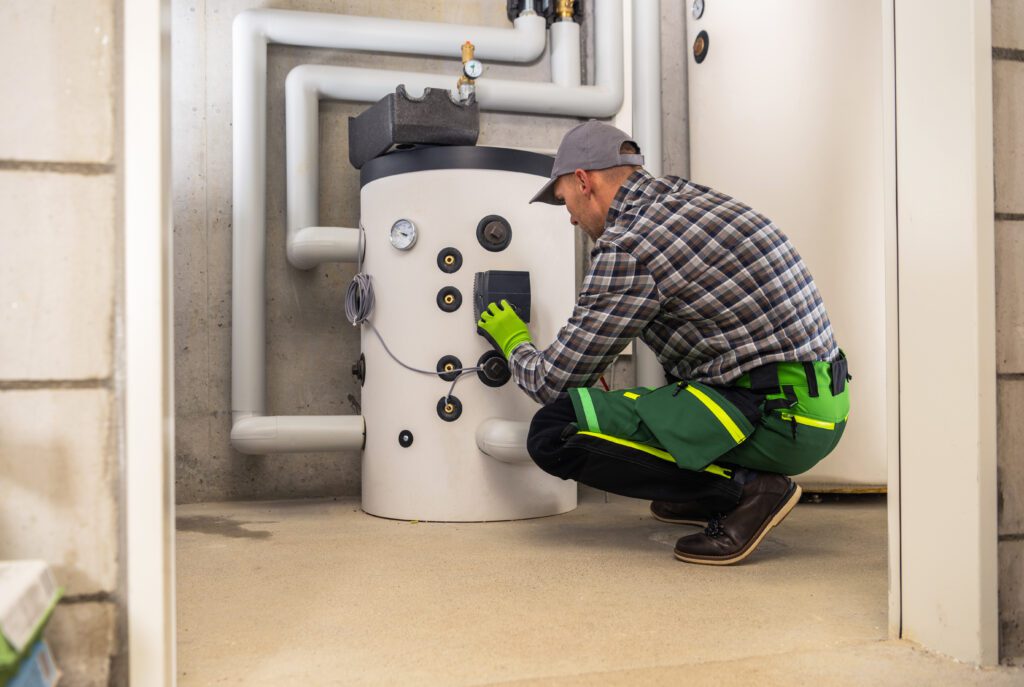
Ignoring boiler problems can have serious consequences, both in terms of safety and financial implications.
Safety Risks of a Malfunctioning Boiler
A malfunctioning boiler can pose significant safety risks to you and your household. In severe cases, it may leak carbon monoxide (CO), an odorless and potentially lethal gas. Regularly servicing and promptly repairing your boiler helps ensure it operates safely, minimizing the risk of carbon monoxide poisoning and other hazards.
The Cost of Delaying Boiler Repair
Delaying boiler repairs can result in increased damage and ultimately higher repair costs. What might have been a small and relatively inexpensive issue to address can escalate into a major breakdown, requiring costly parts replacement or even a complete boiler replacement. It is always more cost-effective to address boiler issues promptly.
Moreover, neglecting boiler maintenance can also lead to reduced energy efficiency. A boiler that is not operating at its optimal level due to neglect or malfunction will consume more energy to provide the same level of heat, resulting in higher energy bills. Regular maintenance and timely repairs can help ensure that your boiler operates efficiently, saving you money in the long run.
Furthermore, a malfunctioning boiler can impact more than just your safety and finances. It can also affect the comfort of your home. A faulty boiler may struggle to heat your home evenly, leading to cold spots and discomfort. By addressing boiler problems promptly, you can maintain a cozy and consistent temperature throughout your living space, ensuring a comfortable environment for you and your family.

